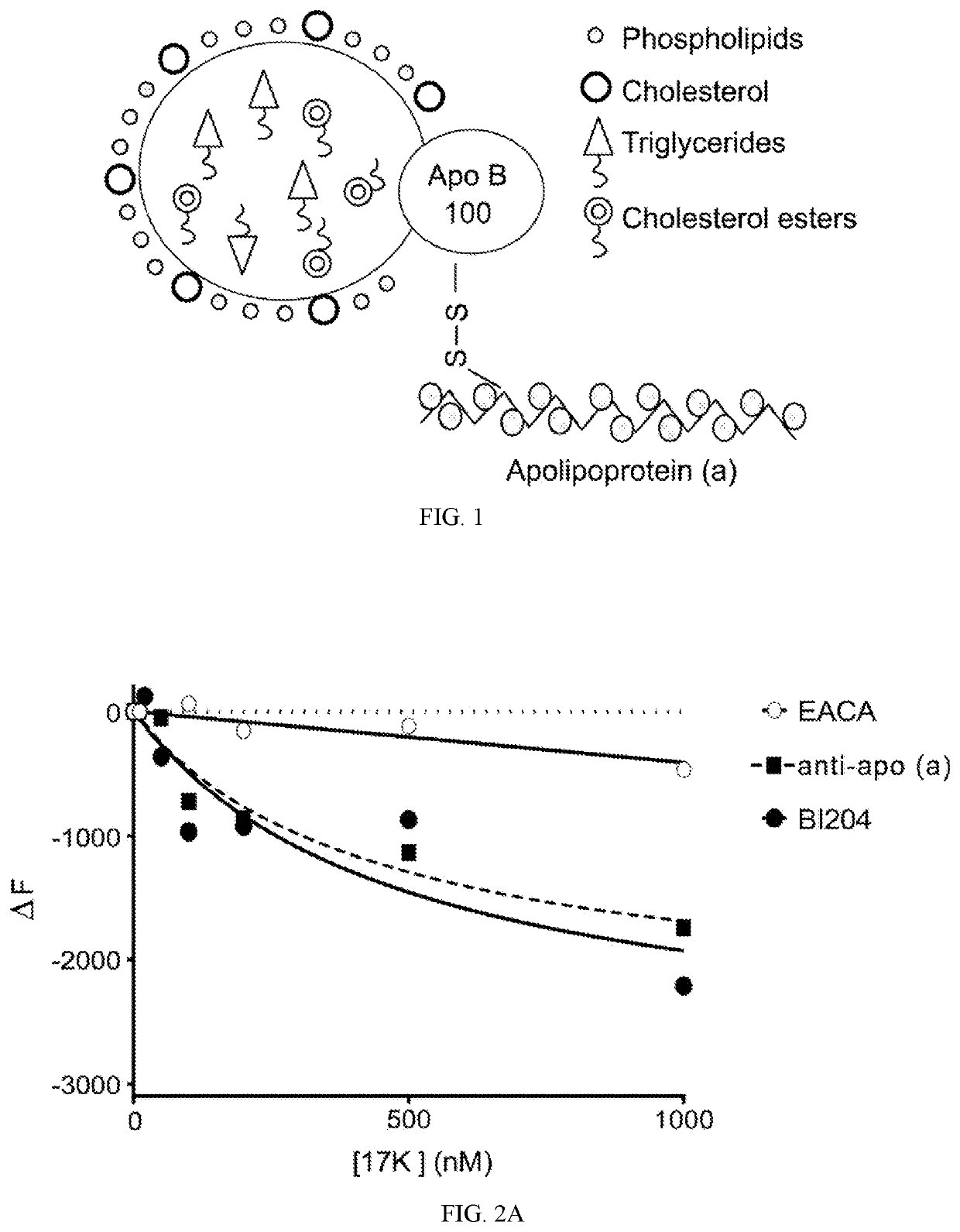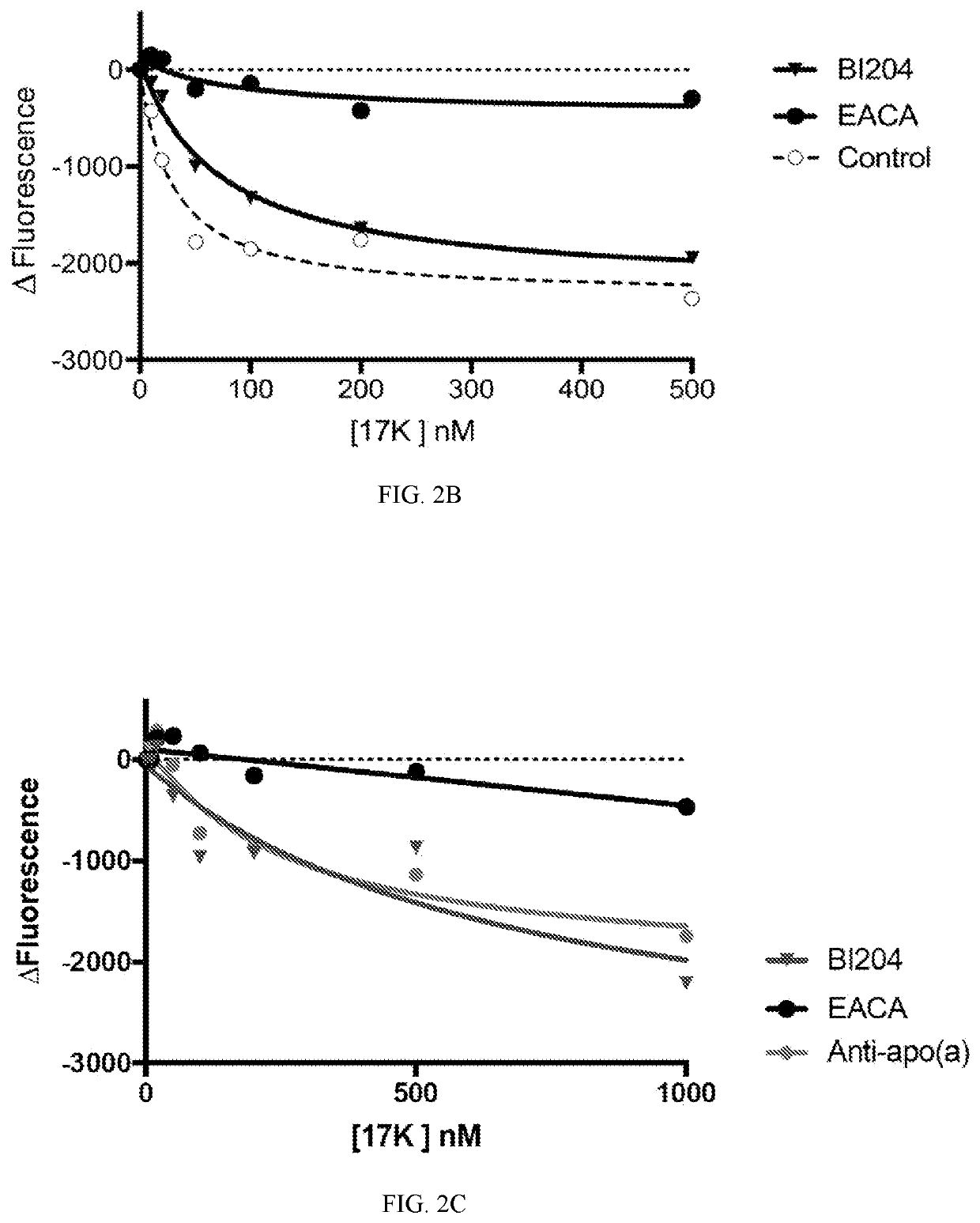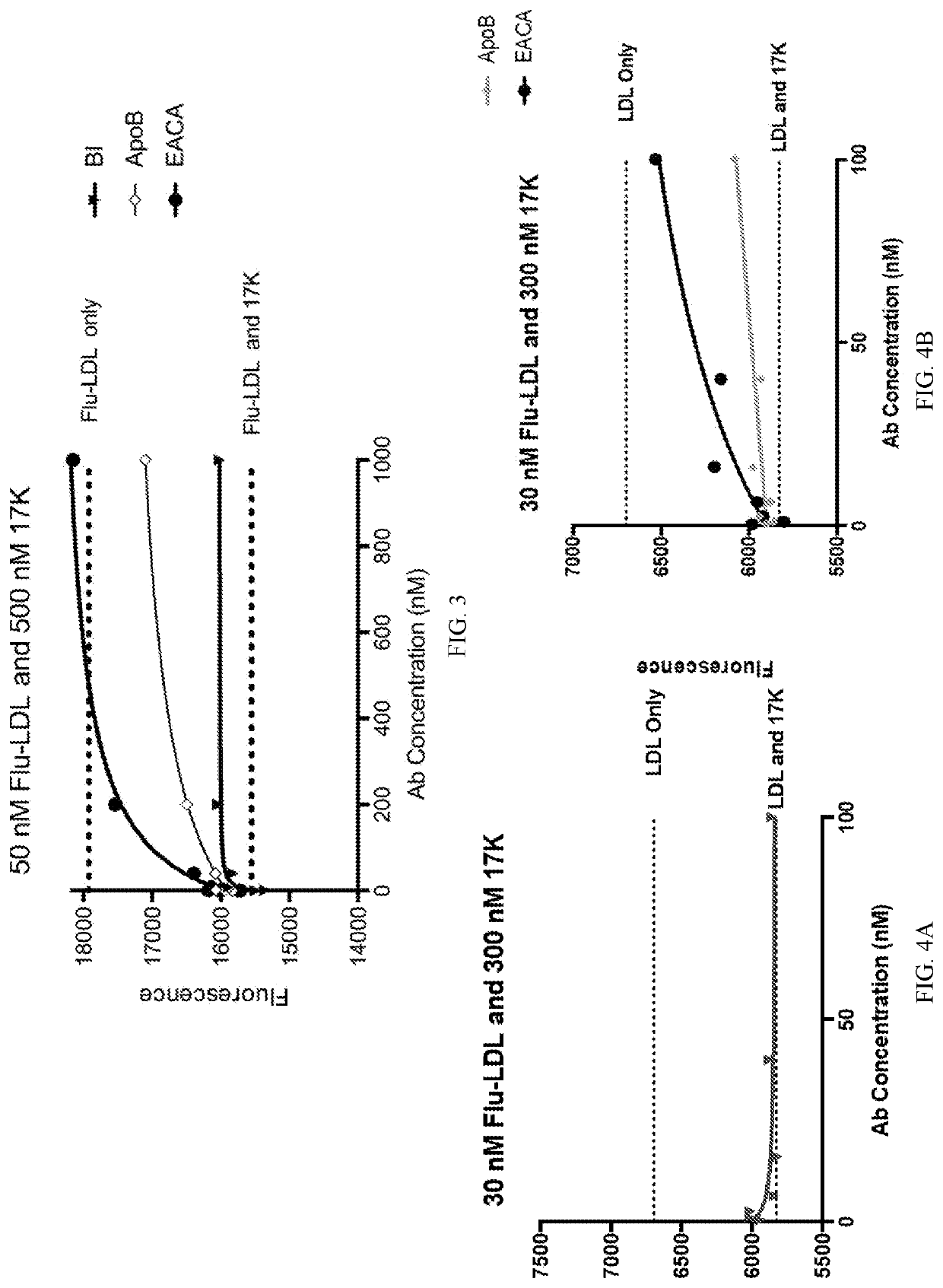Compositions and methods for reduction of lipoprotein a formation and treatment of aortic valve sclerosis and aortic stenosis
- Summary
- Abstract
- Description
- Claims
- Application Information
AI Technical Summary
Benefits of technology
Problems solved by technology
Method used
Image
Examples
example 1
s Blocking the Association Between ApoB100 and Apo(a), Thereby Inhibiting the Assembly of Lp(a)
[0112]FIG. 2 shows using antibodies capable of binding the binding sites on the Apolipoprotein B100 molecule, the assembly of Apolipoprotein B100 with apolipoprotein (a), thereby the formation of Lp(a), was prevented. ECAC refers to epsilon-aminocaproic acid, which is a derivative and analogue of the amino acid lysine, making it an effective inhibitor for proteins that bind that particular residue. Orticumab (BI204) showed a similar inhibition effect on the formation of Lp(a) to a sheep polyclonal anti-apo(a) antibody (denoted “anti-apo(a)”).
[0113]As such, Applicant demonstrated that orticumab could prevent the binding of ApoB100 and therefore the formation of Lp(a), which is believed to have significant diagnostic and therapeutic implications in the pathophysiologic mechanisms and the clinical treatment of diseases.
example 2
n of AVS Progression by Blocking Lp(a) Formation with Orticumab
[0114]A phase 2 clinical study with a plan as follows: N=100 patients that are early stage AVS subjects younger than 58 years old with elevated Lp(a) in serum and mild AVS (defined by echocardiography). Lp(a) is measured as the total quantity of LDL-c. Endpoints are to assess the slowing of the progression of AVS, measured by echocardiography.
example 3
n of Non-Covalent and Covalent Binding Between Apo(a) and LDL, Thereby Inhibiting the Assembly of Lp(a)
[0115]Inhibition of non-covalent and covalent binding between apo(a) and LDL were assessed by fluorescence and Western blot analysis, respectively. Orticumab was demonstrated very effective in inhibiting non-covalent binding. However fluorescence interference by antibodies made the effect on non-covalent binding inconclusive. Covalent binding was inhibited by orticumab at all concentrations (0.01, 0.1, 1, and 10 μM).
[0116]Non-covalent interaction between apo(a) and LDL:
[0117]LDL was purified from the plasma of a healthy donor using sequential density gradient ultracentrifugation and labeled using the thiol-directed probe 5′-iodoacetamidofluorescein. Recombinant apo(a) variants (r-apo(a): 17K and 17KALBS7,8) were purified from a serum-free conditioned medium that was harvested from stably-expressing HEK293 cell lines. The lysine analogue, ε-aminocaproic acid (EACA), commercially ava...
PUM
| Property | Measurement | Unit |
|---|---|---|
| Fraction | aaaaa | aaaaa |
| Fraction | aaaaa | aaaaa |
| Fraction | aaaaa | aaaaa |
Abstract
Description
Claims
Application Information
 Login to View More
Login to View More - R&D
- Intellectual Property
- Life Sciences
- Materials
- Tech Scout
- Unparalleled Data Quality
- Higher Quality Content
- 60% Fewer Hallucinations
Browse by: Latest US Patents, China's latest patents, Technical Efficacy Thesaurus, Application Domain, Technology Topic, Popular Technical Reports.
© 2025 PatSnap. All rights reserved.Legal|Privacy policy|Modern Slavery Act Transparency Statement|Sitemap|About US| Contact US: help@patsnap.com



